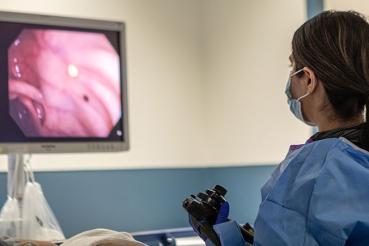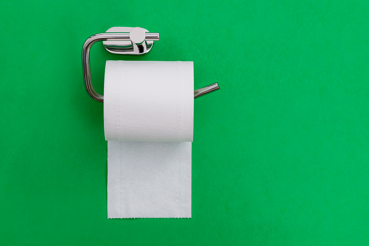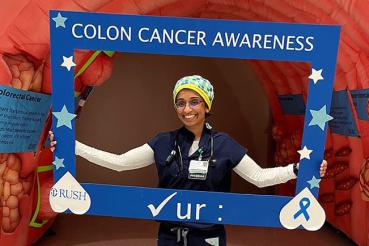Swallowing is one of the earliest things we learn to do. But for Celia Martinez, eating or drinking anything was so painful that she knew she had to see a doctor.
“I felt like food was getting stuck in my throat,” said Celia, a mom of three from Aurora. “I had a hard time getting anything down, but I had to eat something — so I would drink a lot of water to push it down, which hurt.”
Naming the problem and a new procedure
Celia’s primary care doctor at Rush Copley determined she had achalasia.
Achalasia is a rare disorder of the esophagus (where food moves from your mouth to your stomach). Normally, a ring of muscle at the bottom of the esophagus allows food to pass into the stomach. When you have achalasia, this muscle does not relax, and food can stay trapped in the esophagus.
Because achalasia is rare, Celia was told she needed a specialist. She came to Rush University Medical Center for the advanced care she needed.
Traditionally, the treatment for achalasia is surgery. But as a busy mom of young children, Celia knew she wanted a faster recovery time and a less invasive option.
A relatively new procedure called POEM, or a peroral endoscopic myotomy, was the answer. And Rush has one of the only Chicago gastroenterologists offering the POEM procedure.
A POEM procedure uses a scope, or long tube, inserted through the mouth. The scope has tools (such as a camera, pincers or a scalpel) at the end so the doctor can see, move and cut tissue.
“During the POEM procedure, we create a tunnel through the wall of the esophagus to get to the valve, which is just a ring of muscle,” says Irving Waxman, MD, gastroenterologist and chief of the Division of Digestive Diseases and Nutrition at Rush. “We cut the tight muscles of the closed valve, then close the tunnel in the esophagus we used to get to the valve. There are no cuts outside the body because we did it all through the scope.”
Once the valve is cut and the muscles loosened, food can move normally from your esophagus to your stomach.
A total recovery
Although she was nervous before her POEM procedure, Celia’s recovery was straightforward.
“After the surgery, I didn’t feel anything,” Celia said. “I think Dr. Waxman was a magician because I didn’t feel a thing.”
Today, Celia is back to eating and drinking normally. She doesn’t have to worry about pain or making sure she gets enough food. She recommends Rush to anyone looking for answers.
“I want other patients to know there’s a solution,” Celia says. “Don’t be scared to look for answers. There are good treatments out there, and you can find them at Rush. Dr. Waxman is the best — he’s a caring doctor, and he shows it to you.”




